13 Best Herbal Creams For Hot Flashes
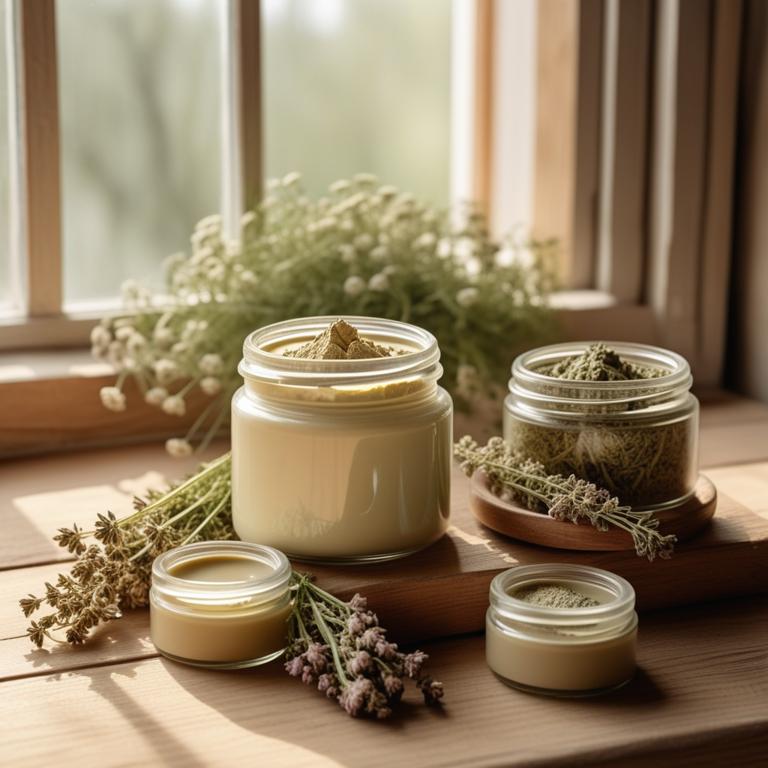
Herbal creams for Hot flashes are topical preparations made from natural herbs and plant extracts that help alleviate the symptoms of hot flashes, a common menopause symptom characterized by sudden feelings of heat, sweating, and flushing.
The benefits of using herbal creams to treat hot flashes include their ability to provide fast and localized relief, reduce symptoms severity, and promote overall well-being.
Examples of herbal creams used to treat hot flashes include black cohosh cream, which is known for its estrogen-balancing properties; wild yam cream, which contains anti-inflammatory compounds that help soothe skin; and sage cream, which has been traditionally used to calm the nervous system and regulate hormonal imbalances.
Additionally, other herbal creams like peppermint, ginger, and passionflower are also used to treat hot flashes due to their cooling and calming effects.
According to "Archives of gynecology and obstetrics", creams for hot flashes may be beneficial in the treatment of menopausal vasomotor symptoms in some women, specifically those containing clonidine or black cohosh, as per the evidence from published randomised controlled studies.
Below there's a list of the 13 best herbal creams for hot flashes.
- 1. Curcuma longa creams
- 2. Camellia sinensis creams
- 3. Rosmarinus officinalis creams
- 4. Lavandula angustifolia creams
- 5. Vitex agnus-castus creams
- 6. Glycyrrhiza glabra creams
- 7. Zingiber officinale creams
- 8. Origanum vulgare creams
- 9. Cymbopogon citratus creams
- 10. Ginkgo biloba creams
- 11. Hypericum perforatum creams
- 12. Trifolium pratense creams
- 13. Melissa officinalis creams
Also you may be interested in...
TODAY'S FREE BOUNDLE
Herb Drying Checklist + Herbal Tea Shopping List + Medicinal Herbs Flashcards
Enter you best email address below to receive this bundle (3 product valued $19.95) for FREE + exclusive access to The Aphotecary Letter.
$19.95 -> $0.00
1. Curcuma longa creams
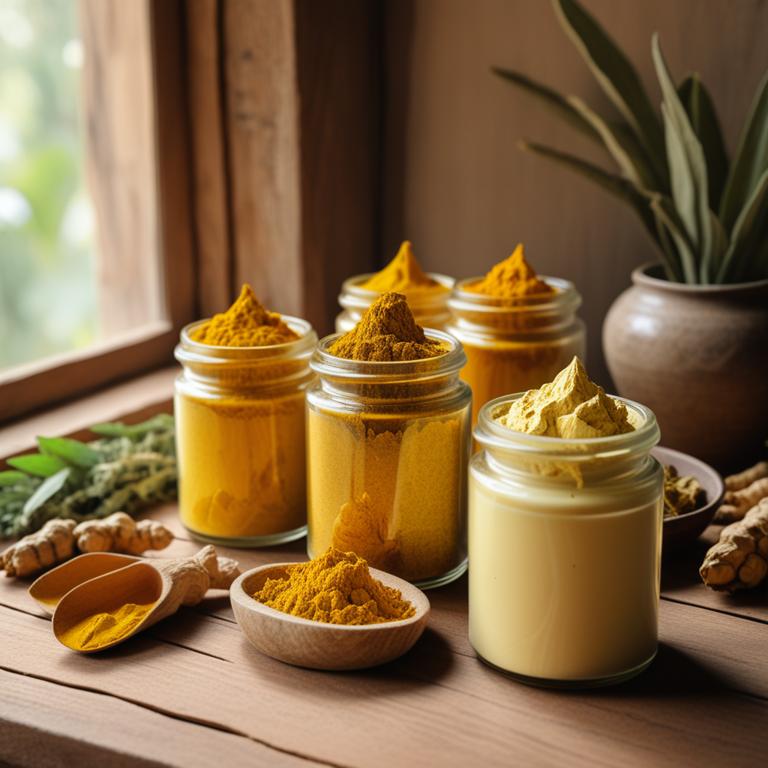
Curcuma longa creams have been increasingly used to treat hot flashes in menopausal women, leveraging its anti-inflammatory and antioxidant properties to alleviate symptoms.
The bioactive constituents, such as curcumin, demethoxycurcumin, and bisdemethoxycurcumin, found in these creams help to modulate the body's response to hormonal changes, thereby reducing the frequency and severity of hot flashes.
The anti-inflammatory properties of Curcuma longa creams also help to soothe and calm the body, further contributing to a reduction in hot flash symptoms.
The benefits of using Curcuma longa creams to treat hot flashes include reduced frequency and severity of symptoms, improved quality of life, and a natural alternative to conventional hormone replacement therapy.
2. Camellia sinensis creams
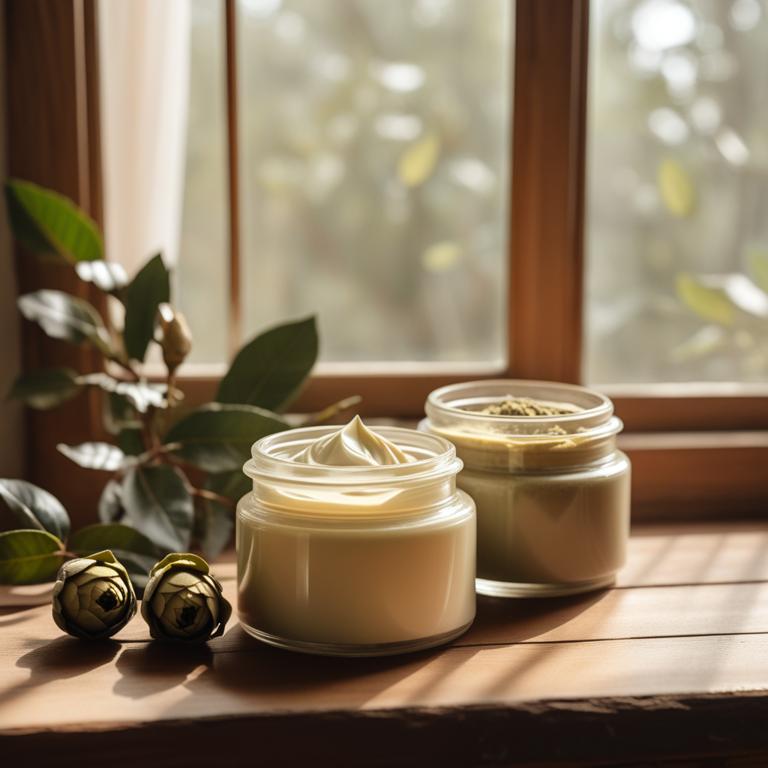
Camellia sinensis creams are herbal preparations derived from the Camellia sinensis plant, commonly known as green tea, which have been traditionally used to treat hot flashes in menopausal women.
The properties of Camellia sinensis creams that help to treat this ailment include their anti-inflammatory, antioxidant, and estrogenic properties, which help to reduce the frequency and severity of hot flashes.
The bioactive constituents of Camellia sinensis creams, such as epigallocatechin gallate (EGCG), epicatechin (EC), and epicatechin gallate (ECG), help to treat hot flashes by modulating estrogen receptors and reducing inflammation in the body.
The benefits of Camellia sinensis creams in treating hot flashes include reduced frequency and severity of hot flashes, improved sleep quality, and enhanced overall well-being.
3. Rosmarinus officinalis creams
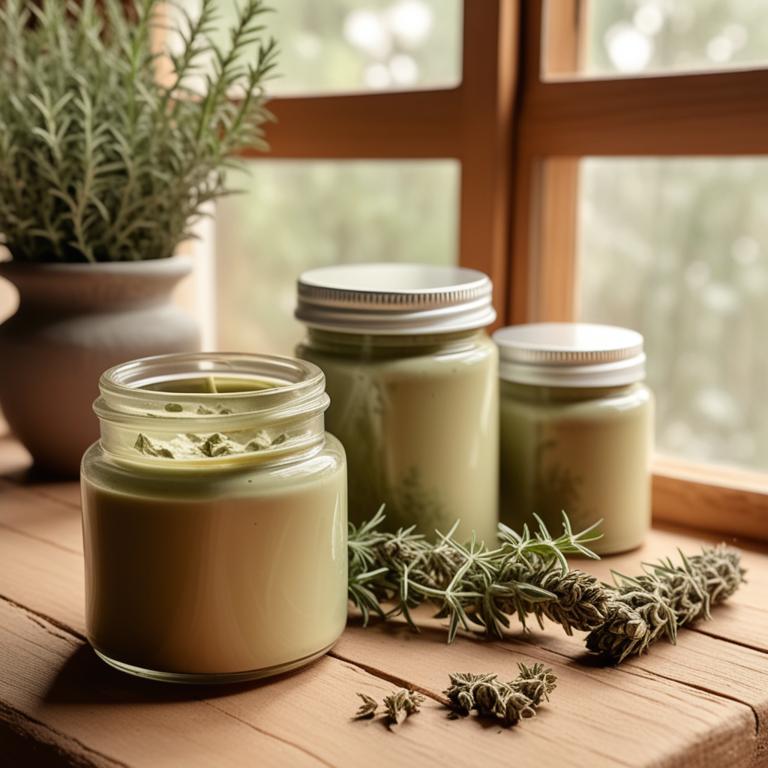
Rosmarinus officinalis creams have been traditionally used to treat hot flashes, a common symptom of menopause, due to their calming and regulating properties.
The bioactive constituents of Rosmarinus officinalis, including rosmarinic acid, carnosic acid, and camphor, help to alleviate hot flashes by reducing inflammation, improving blood flow, and stabilizing hormone levels.
These creams work by promoting relaxation, reducing anxiety and stress, and regulating body temperature, thereby providing relief from hot flashes.
The benefits of using Rosmarinus officinalis creams to treat hot flashes include reduced frequency and severity of episodes, improved sleep quality, and a general sense of well-being.
4. Lavandula angustifolia creams
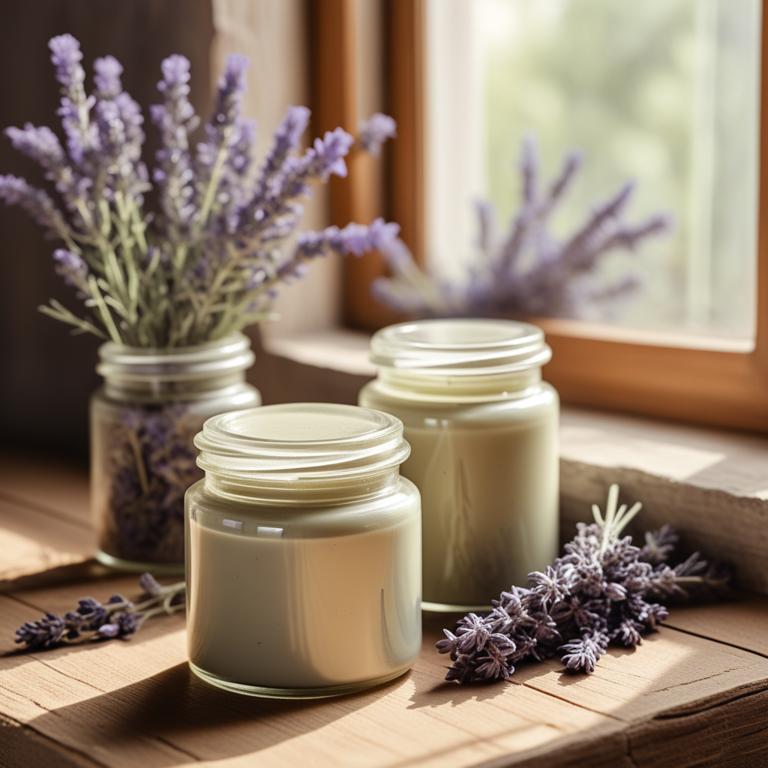
Lavandula angustifolia creams have been traditionally used to treat hot flashes in menopausal women due to their calming and anti-inflammatory properties.
The bioactive constituents, such as linalool and linalyl acetate, in these creams help to reduce the frequency and severity of hot flashes by promoting relaxation and regulating body temperature.
By reducing stress and anxiety, Lavandula angustifolia creams help to alleviate the symptoms of hot flashes, allowing women to manage their condition more effectively.
The benefits of using these creams include improved sleep quality, reduced frequency of hot flashes, and enhanced overall well-being, making them a popular natural remedy for menopausal symptoms.
5. Vitex agnus-castus creams
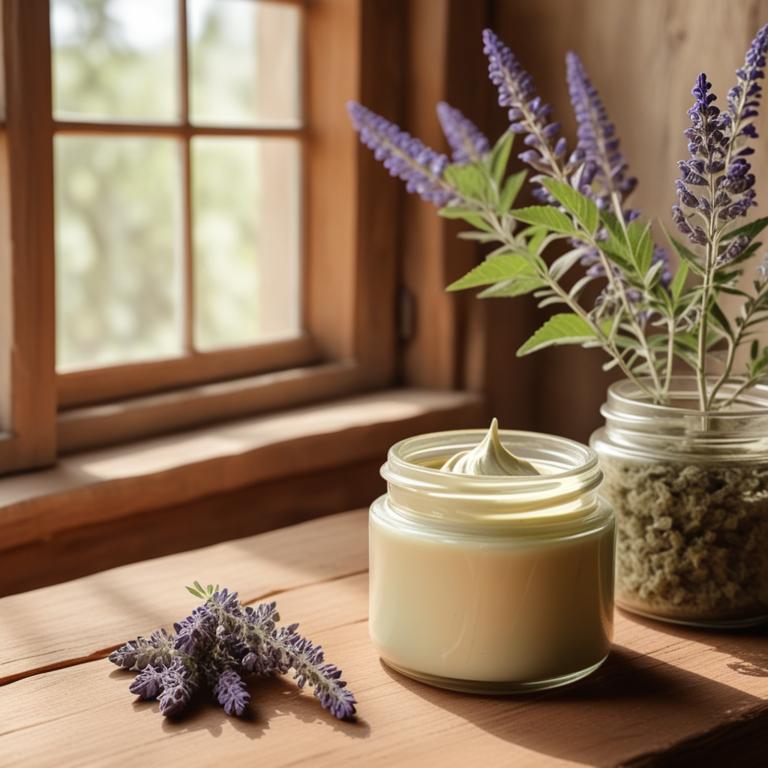
Vitex agnus-castus creams have been traditionally used to treat hot flashes in menopausal women due to their estrogen-modulating properties, which help to regulate hormonal imbalances and alleviate symptoms associated with menopause.
The bioactive constituents present in Vitex agnus-castus creams, such as agnuside, flavonoids, and iridoid glycosides, are responsible for their therapeutic effects, including anti-inflammatory and antioxidant properties.
These creams work by influencing the hypothalamic-pituitary-gonadal axis, thereby reducing the frequency and severity of hot flashes.
The benefits of using Vitex agnus-castus creams for hot flashes include reduced symptoms, improved quality of life, and a natural alternative to hormone replacement therapy.
Related Study
According to "Electronic physician", Vitex agnus-castus creams for hot flashes may be effective in the treatment of acute menopausal syndrome.
6. Glycyrrhiza glabra creams
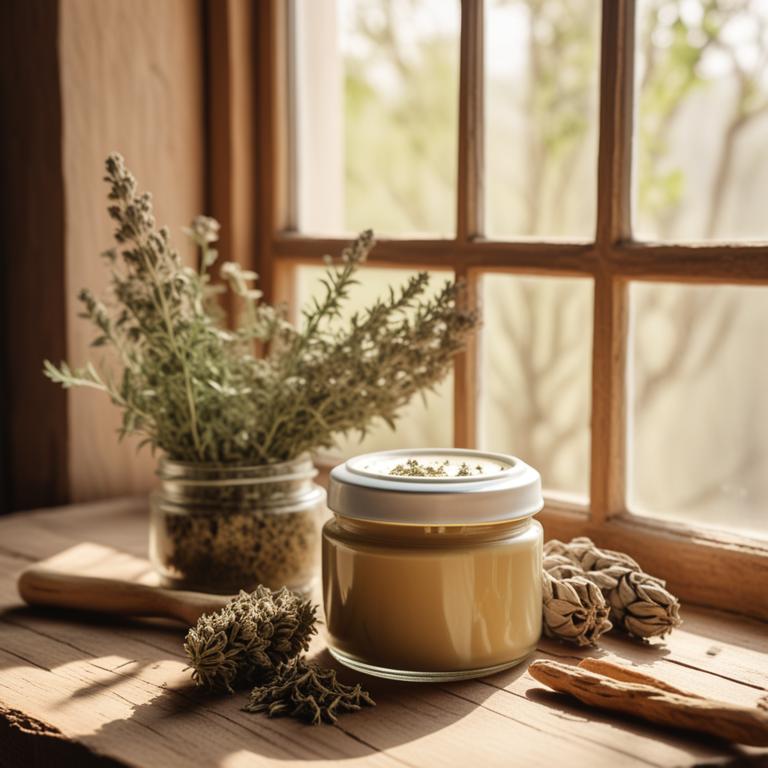
Glycyrrhiza glabra creams have been traditionally used to treat hot flashes in women, particularly those experiencing menopausal symptoms.
The anti-inflammatory and antioxidant properties of this herbal preparation help to soothe and calm the body, reducing the severity of hot flashes.
The bioactive constituents, including glycyrrhizin and flavonoids, play a crucial role in treating hot flashes by regulating hormonal imbalances and modulating the body's response to stress.
By using Glycyrrhiza glabra creams, women can experience a range of benefits, including reduced frequency and intensity of hot flashes, improved mood, and enhanced overall well-being.
Related Study
According to "Electronic physician", Glycyrrhiza glabra creams for hot flashes have been identified as one of the effective herbal medicines in the treatment of menopausal symptoms, as per a study examining clinical trial studies between 1994 and 2016.
7. Zingiber officinale creams
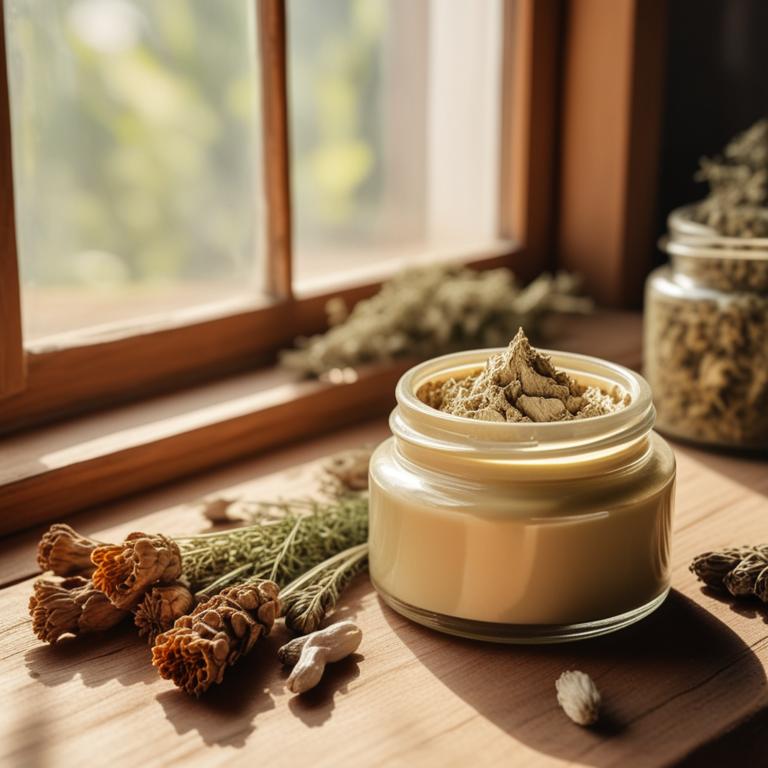
Zingiber officinale creams, derived from the rhizomes of the ginger plant, have been traditionally used to treat hot flashes in menopausal women.
The anti-inflammatory and antioxidant properties of this herbal preparation help to reduce the frequency and severity of hot flashes by regulating body temperature and improving blood circulation.
The bioactive constituents, including gingerols and shogaols, possess a thermogenic effect that helps to alleviate the symptoms of hot flashes by releasing heat and improving overall well-being.
The benefits of using Zingiber officinale creams to treat hot flashes include reduced sweating, improved sleep quality, and a decrease in the risk of cardiovascular disease, making it a popular natural remedy for menopausal women.
8. Origanum vulgare creams
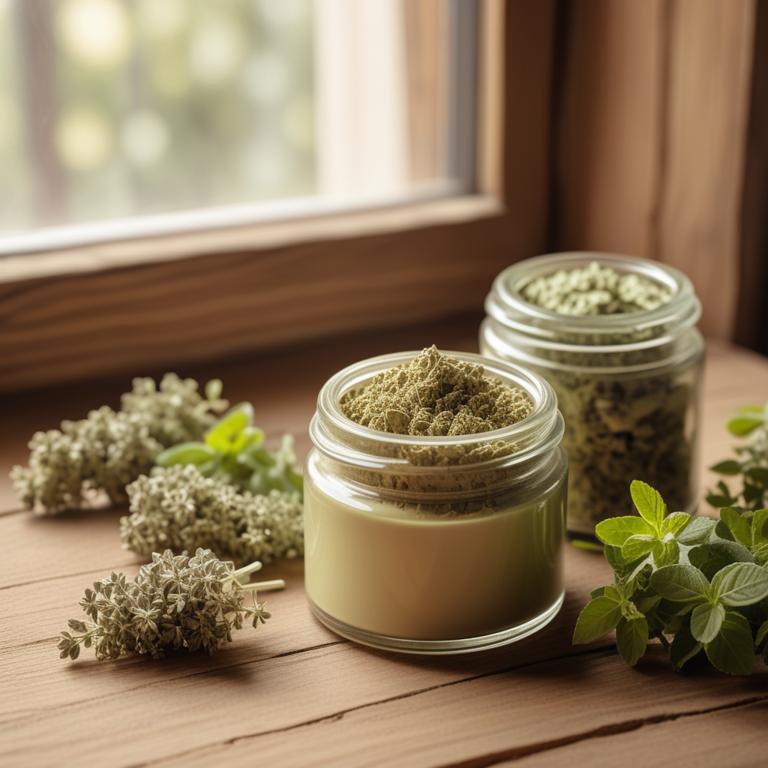
Origanum vulgare creams, derived from the herb oregano, have been traditionally used to treat hot flashes in women.
The antispasmodic and vasodilatory properties of this herbal preparation help to reduce the frequency and severity of hot flashes by alleviating muscle spasms and promoting blood vessel dilation.
The bioactive constituents of Origanum vulgare, including carvacrol and thymol, have been found to exhibit estrogen-like effects, which can help to regulate hormonal imbalances that contribute to hot flashes.
By using Origanum vulgare creams, women can experience relief from hot flashes and other menopausal symptoms, leading to improved overall well-being and quality of life.
9. Cymbopogon citratus creams
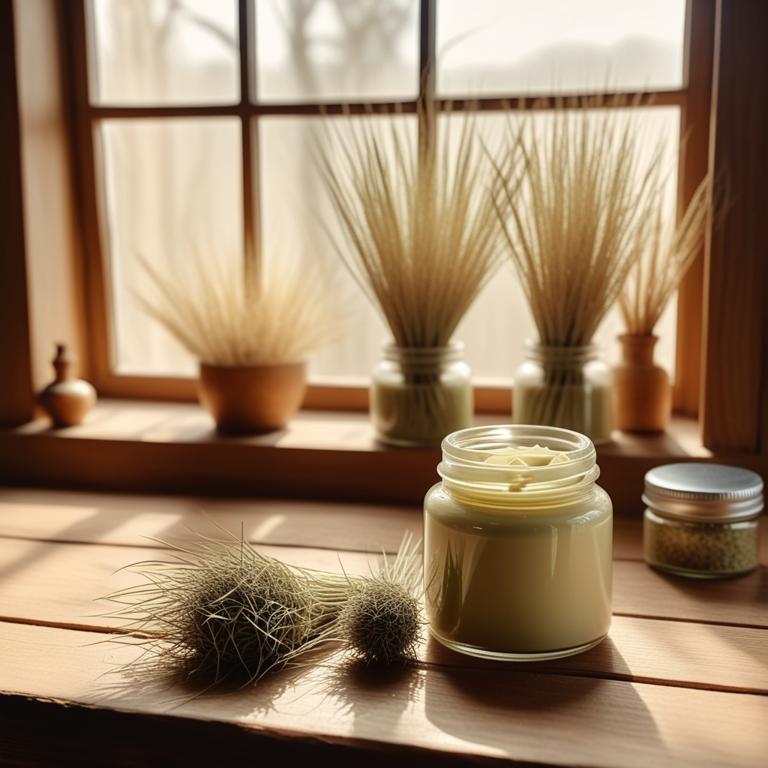
Cymbopogon citratus creams, derived from the essential oil of lemongrass, have been found to be effective in treating hot flashes in menopausal women.
The creams contain bioactive constituents such as citral and geraniol, which exhibit anti-inflammatory and antioxidant properties that help to alleviate hot flash symptoms.
By reducing inflammation and promoting relaxation, Cymbopogon citratus creams help to regulate body temperature and alleviate the sudden episodes of hot flashes.
The benefits of using Cymbopogon citratus creams to treat hot flashes include reduced frequency and severity of symptoms, improved sleep quality, and a decrease in overall menopausal discomfort.
10. Ginkgo biloba creams
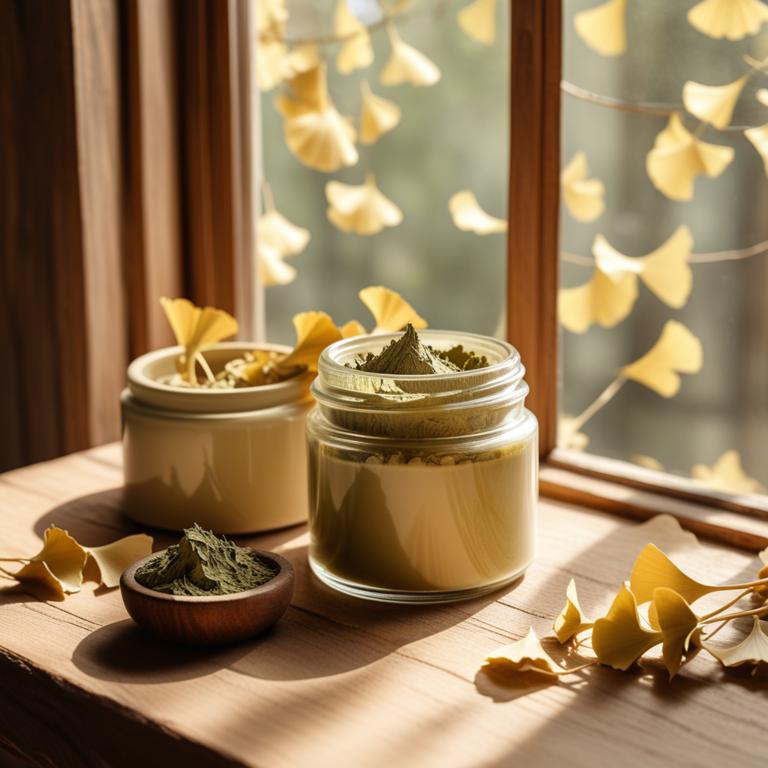
Ginkgo biloba creams have been traditionally used to treat hot flashes in menopausal women due to their ability to improve blood circulation, reduce inflammation, and act as an antioxidant.
The bioactive constituents of Ginkgo biloba, including flavonoids, terpenoids, and bilobalide, help to alleviate hot flashes by modulating neurotransmitter activity and stabilizing hormone levels.
By reducing the frequency and severity of hot flashes, Ginkgo biloba creams can improve the overall quality of life for menopausal women.
The benefits of using Ginkgo biloba creams for hot flashes include reduced symptoms, improved mood, and enhanced sleep quality, making it a popular natural remedy for menopausal symptoms.
Related Study
According to "Electronic physician", Ginkgo biloba creams for hot flashes may be effective in the treatment of acute menopausal syndrome, particularly hot flashes, as per the studied medicinal plants that show efficacy in managing menopausal symptoms.
11. Hypericum perforatum creams
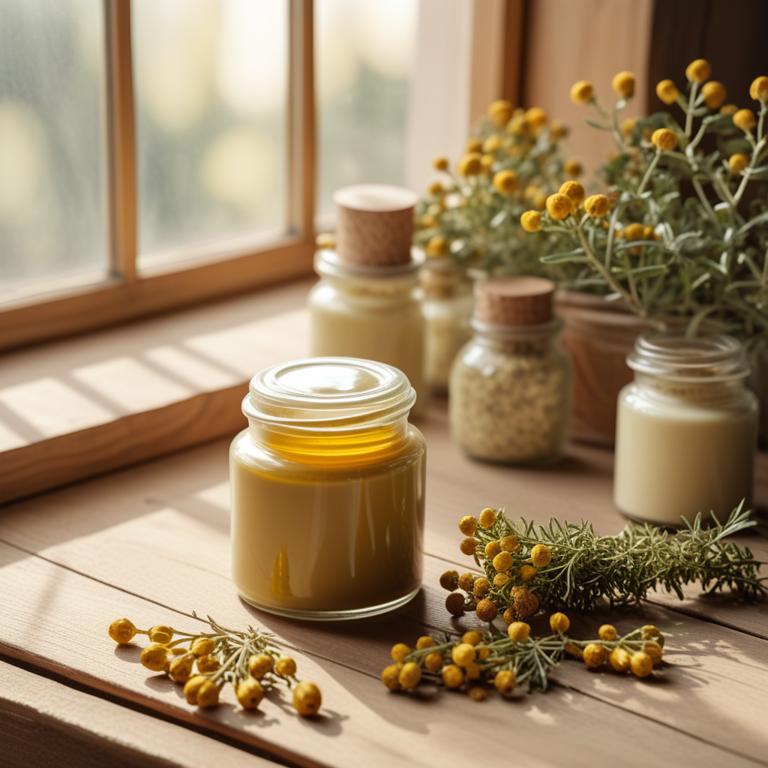
Hypericum perforatum creams, also known as St. John's Wort creams, have been traditionally used to treat hot flashes, a common symptom of menopause.
The properties of this herbal preparation, such as its antispasmodic and anti-inflammatory effects, help to soothe and calm the skin, providing relief from the discomfort and pain associated with hot flashes.
The bioactive constituents of Hypericum perforatum creams, including hyperforin and hypericin, are believed to contribute to their therapeutic effects, helping to reduce the frequency and severity of hot flashes.
By using Hypericum perforatum creams, women can experience the benefits of reduced hot flashes, improved sleep quality, and enhanced overall well-being.
Related Study
According to "Electronic physician", Hypericum perforatum creams for hot flashes may be effective in treating acute menopausal syndrome due to its mechanisms in alleviating menopausal symptoms.
12. Trifolium pratense creams
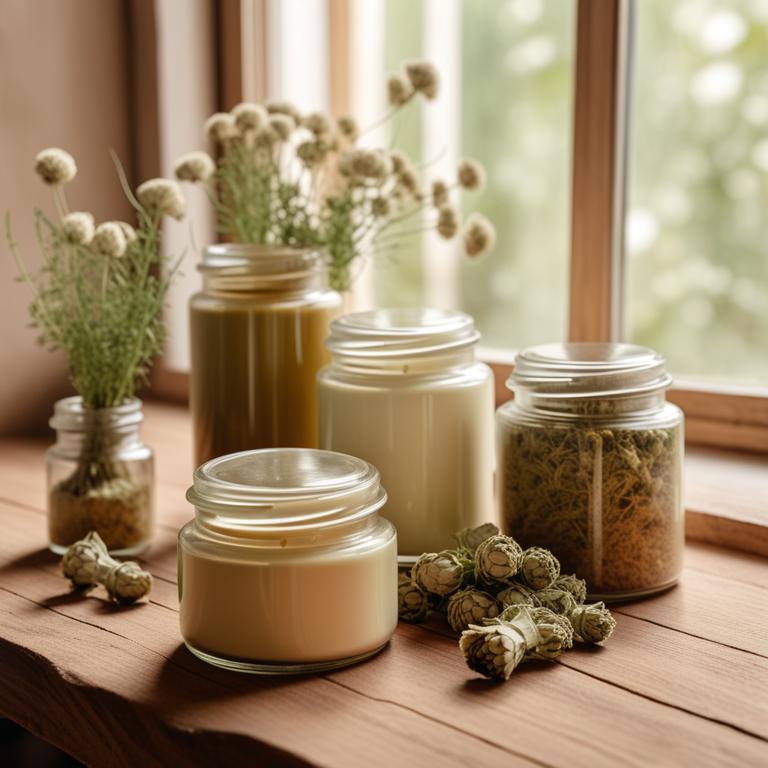
Trifolium pratense creams, also known as red clover creams, have been traditionally used to treat hot flashes in menopausal women.
This herbal preparation contains isoflavones, such as formononetin and genistein, which help to alleviate hot flashes by mimicking the effects of estrogen in the body, thereby reducing the severity and frequency of hot flashes.
The bioactive constituents of Trifolium pratense creams, including isoflavones and other phytoestrogens, help to modulate the body's hormonal balance, leading to improved symptoms of menopause, including hot flashes.
The benefits of using Trifolium pratense creams to treat hot flashes include reduced symptoms, improved quality of life, and a natural alternative to hormone replacement therapy.
Related Study
According to "Electronic physician", Trifolium pratense creams for hot flashes have been found to be effective in the treatment of acute menopausal syndrome, specifically hot flashes, as part of a range of medicinal plants investigated in a study reviewing clinical trials from 1994 to 2016.
13. Melissa officinalis creams
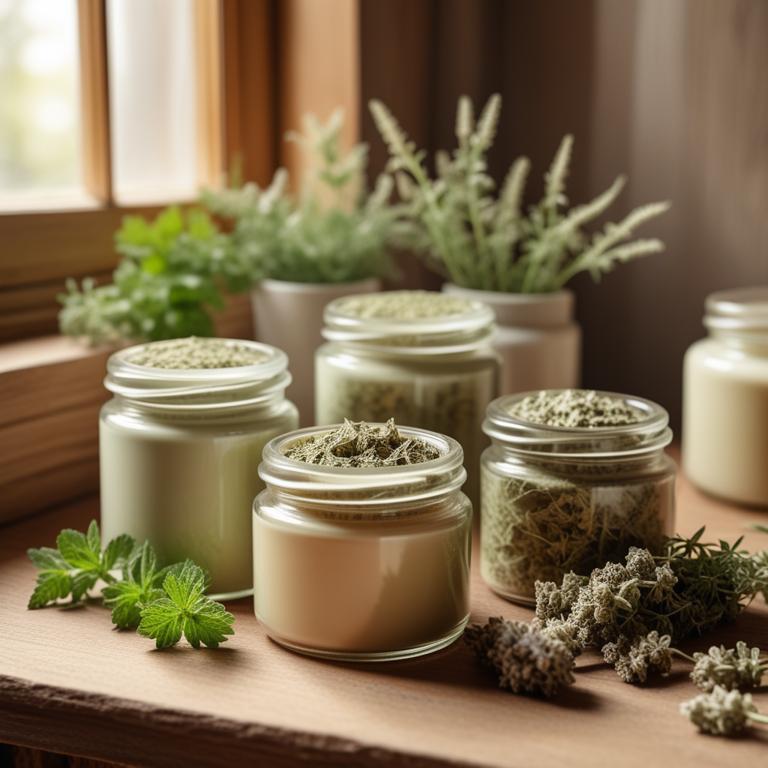
Melissa officinalis creams have been traditionally used to treat hot flashes, a common symptom associated with menopause.
The antispasmodic and anti-anxiety properties of this herbal preparation help to alleviate the symptoms of hot flashes by reducing muscle spasms and promoting relaxation.
The bioactive constituents, including linalool and linalyl acetate, contribute to the sedative and calming effects of Melissa officinalis creams, which in turn help to regulate body temperature and alleviate hot flashes.
Regular use of Melissa officinalis creams can provide relief from hot flashes, improve sleep quality, and enhance overall well-being in women experiencing menopausal symptoms.
Related Study
According to "Electronic physician", Melissa officinalis creams for hot flashes are among the effective herbal medicines used in the treatment of menopausal symptoms.